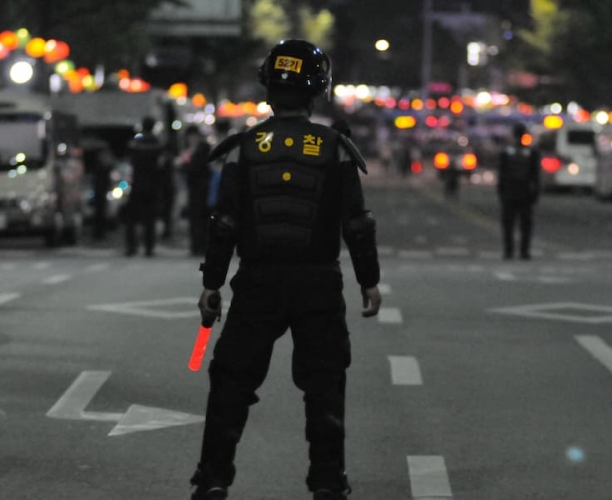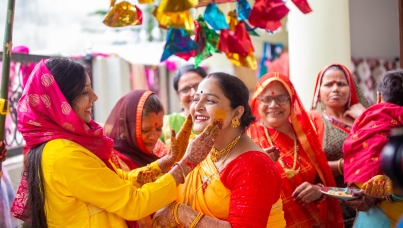

1 in 4 Urban Indians report rise in crime and violence in their neighborhood in last 12 months: Views on Crime or Violence & Law Enforcement around the world – A 29 country Ipsos Global Advisor Study
Views on Crime or Violence and Law Enforcement Around the World, a 29-nation global advisor study by Ipsos, a global market research company, shows at least 1 in 4 Indians (24%) reporting a spike in crime or violence in their neighborhood in the last 12 months. Global citizens seemed impacted more, with 1 in 3 global citizens (34%) reporting a surge in incidents of crime or violence in their neighbourhood in the past 1 year. The survey showed alarming numbers of escalation in crime or violence for Chile (68%), Argentina (64%) and Peru (64%).
Surge in different types of crime seenUrban Indians claim to have seen or heard of many crimes in their neighbourhood. 44% urban Indians report vehicle thefts – of both 4-wheelers and 2-wheelers in their neighbourhood; 41% report burglaries in their neighbourhood; 37% believe there is illegal drug consumption in their neighbourhood; 1 in 3 urban Indians (33%) believe there is a surge in incidents of drug trafficking in their neighbourhood; 30% Indians believe there is an increase in vandalism in the past 12 months; one in three report increase in violence against adult women (34%), violence against adult men (32%) and assault against adolescents and children (33%) have also increased in the past 12 months.Further, at least 33% Indians report gang activity in their neighbourhood and a quarter (26%) believe they have heard about or seen incidents of prostitution increasing in their neighbourhood, in the last 12 months. Interestingly, gang activity was seen to be highest among Indonesians (66%) and Thais (61%). While markets reporting highest surge in incidents of prostitution in their neighbourhood were Indonesians (58%) and South Africans (54%). Japan (7%) and Israel (8%) reported lowest numbers.
Confidence in law enforcement agencies in forestalling crimeCrime is seen to be an intrinsic part of all global societies, though the intensity differs by markets, but how good are the law enforcement agencies in preventing and dealing with crime with an iron hand, shows more number of Indians reposing faith in their law enforcement agencies like police: 62% urban Indians believe the law enforcement agencies like police are adept at preventing violent crimes from happening; 62% believe police can stop non-violent crimes like burglaries, thefts and fraud from happening. 62% urban Indians believe their law enforcement agencies are capable of finding and arresting the right criminal after a crime. And 3 in 5 Indians (61%) believe the law enforcement agencies treat all citizens with the same level of respect.Citizens of Singapore were seen to have the highest confidence in their law enforcement agencies. In their ability to prevent violent crimes (78%), preventing non-violent crimes (78%), finding and arresting the right criminal after the crime (79%) and treating all citizens with same level of respect (80%). Model society?
Commenting on the findings of the survey, Amit Adarkar, CEO, Ipsos India said, “Crime and violence are seen to be rampant in urban societies in India due to the disparity in incomes and the ever-widening gap between haves and have nots. Interestingly, the survey validates the confidence in police and law enforcement agencies, as they wield power to charge and prosecute those held guilty of any crime. Only fines for breaking the law and fear of law enforcers can keep criminals at bay. Only the fear of a jail term can keep the offenders in check.”
Defining govt’s priority for citizens in the neighbourhood
In the backdrop of a growing crime, urban Indians want the govt to focus on jobs and boosting the economy most (48%), followed by stopping or reducing crime (29%) and 23% want the govt to protect citizens’ health and the environment.
“Urban Indians foremost want the govt to focus on job creation and building a robust economy. Dealing with crime comes lower in the hierarchy. It’s not surprising as India is still emerging from the prolonged impact of the pandemic and is also impacted to some extent with the unending Ukraine war,” added Adarkar.
About the Study
These are the results of a 29-country survey conducted by Ipsos on its Global Advisor online survey platform and, in India, on its IndiaBus platform, between Friday, March 24 and Friday, April 7, 2023. For this survey, Ipsos interviewed a total of 23,039 adults aged 18 years and older in India, 18-74 in Canada, Israel, Malaysia, South Africa, Turkey, and the United States, 20-74 in Thailand, 21-74 in Indonesia and Singapore, and 16-74 in all other countries.
The sample consists of approximately 2,000 individuals in Japan, 1,000 individuals each in Argentina, Australia, Brazil, Canada, France, Germany, Great Britain, Italy, Mexico, Spain, and the U.S., and 500 individuals each in Belgium, Chile, Colombia, Hungary, Indonesia, Israel, Malaysia, the Netherlands, Peru, Poland, Singapore, South Africa, South Korea, Sweden, Thailand, and Turkey. The sample in India consists of approximately 2,200 individuals, of whom 1,800 were interviewed face-to-face and 400 were interviewed online.Samples in Argentina, Australia, Belgium, Canada, France, Germany, Great Britain, Hungary, Italy, Japan, the Netherlands, Poland, South Korea, Spain, Sweden, and the U.S. can be considered representative of their general adult populations under the age of 75.
Samples in Brazil, Chile, Colombia, Indonesia, Israel, Malaysia, Mexico, Peru, Singapore, South Africa, Thailand, and Turkey are more urban, more educated and/or more affluent than the general population. The survey results for these countries should be viewed as reflecting the views of the more “connected” segment of their population.
India’s sample represents a large subset of its urban population – social economic classes A, B and C in metros and tier 1-3 town classes across all four zones.The data is weighted so that the composition of each country’s sample best reflects the demographic profile of the adult population according to the most recent census data.
The “29-country average” reflects the average result for all the countries and markets in which the survey was conducted. It has not been adjusted to the population size of each country or market and is not intended to suggest a total result.
Where results do not sum to 100 or the ‘difference’ appears to be +/-1 percentage point more/less than the actual result, this may be due to rounding, multiple responses, or the exclusion of “don't know/not sure” or not stated responses.
The precision of Ipsos online polls is calculated using a credibility interval with a poll of 1,000 accurate to +/- 3.5 percentage points and of where N=500 being accurate to +/- 5.0 percentage points. For more information on Ipsos’s use of credibility intervals, please visit the Ipsos website.
About Ipsos
Ipsos is one of the largest market research and polling companies globally, operating in 90 markets and employing over 18,000 people. Our passionately curious research professionals, analysts and scientists have built unique multi-specialist capabilities that provide true understanding and powerful insights into the actions, opinions and motivations of citizens, consumers, patients, customers or employees. Our 75 solutions are based on primary data from our surveys, social media monitoring, and qualitative or observational techniques. Our tagline "Game Changers" sums up our ambition to help our 5,000 customers move confidently through a rapidly changing world. Founded in France in 1975, Ipsos has been listed on the Euronext Paris since July 1, 1999. The company is part of the SBF 120 and Mid-60 indices and is eligible for the Deferred Settlement Service (SRD).ISIN code FR0000073298, Reuters ISOS.PA, Bloomberg IPS:FP www.ipsos.com.



